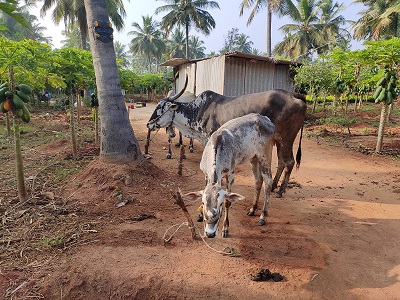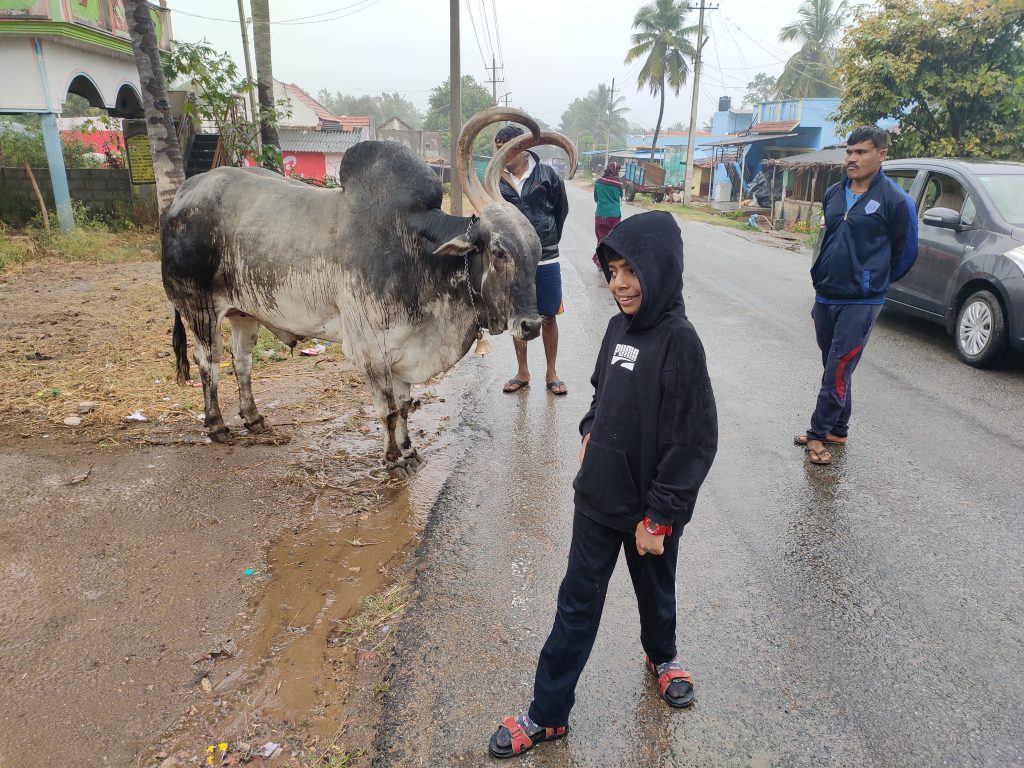Here you will find information about Organic Farming
DESI COWS IN ORGANIC FARMING
The Indian desi cow is an integral part of the history of our farming. Earlier all the farms used to have some cows. Cows were always treated as a family member. These cows were the source of milk, cow dung and cow urine which were essential items for the farmer. While the milk was for the consumption of his family, the cow dung was used to coat walls and mix in the soil.
Earlier, cow dung and cow urine were used as manure and pesticides. To have cow dung and cow urine in large quantities, it was important for the farm to own cows. Due to these products, even when the cow stopped giving milk, she was always helping the farm. The desi cow was a main pillar for the traditional Indian farming. Choosing to grow a farm in a traditional manner will keep the legacy of the indigenous desi cows alive.

COW DUNG FOR THE SOIL
Cow dung, when mixed with soil, works as manure. This soil is very soft and yields a very good quality of produce. Cow dung manure is one of the finest bio-fertilizers. It is rich in nutrients and beneficial bacteria which boosts the fertility of the soil. The overall quality of the soil also improves by using cow dung manure
COW URINE FOR FARMING
A mixture of Cow urine and water extract of neem leaves has proven to keep away pests and insects. It is the safest option to keep away the pests from food products because there are no chemicals in this mixture. It is also antifungal. Combined with neem extract it serves as the best pesticide and insecticide for organic farming.
PANCHAGAVYA FOR PLANT GROWTH
A mixture of Cow dung, cow urine, curd, milk and ghee along with tender coconut, ripe bananas and sugarcane juice is fermented for 21 days. This mixture is the most natural and effective plant growth promoter. Panchagavya forms a thin layer of oil on the leaves and stems. This reduces water loss due to evaporation during the day. Also as Panchagavya causes the roots to grow longer, plants can withstand longer periods of dry weather. By using Panchagavya, the plant reduces by 30% of its water consumption.
ROLE OF DESI BULLS IN FARMING
Even before the invention of tractors and modern farming machinery, India was an agricultural country with 75% population engaged in farming. The farms in India were well kept and fruitful enough to sustain the entire nation. Desi Bulls were strong enough to plough the fields and sustain the climate of the country. Desi Bulls could plough the fields without harming the environment or degrading the soil. Their contribution was always remarkable in Indian farming.
Today, the plight of cows in India is extremely worrisome. Their life is impacted when more people are inclined towards buying desi cow-based products. The need for a desi cow in our ecosystem is not restricted to the milk she gives. If we chose to use traditional farming techniques, the desi cow will be needed even after she stops giving milk. Her bi-products will help in chemical-free, natural and organic farming
The above information is from https://bodhishop.in/blogs/news/desi-cow-based-farming
